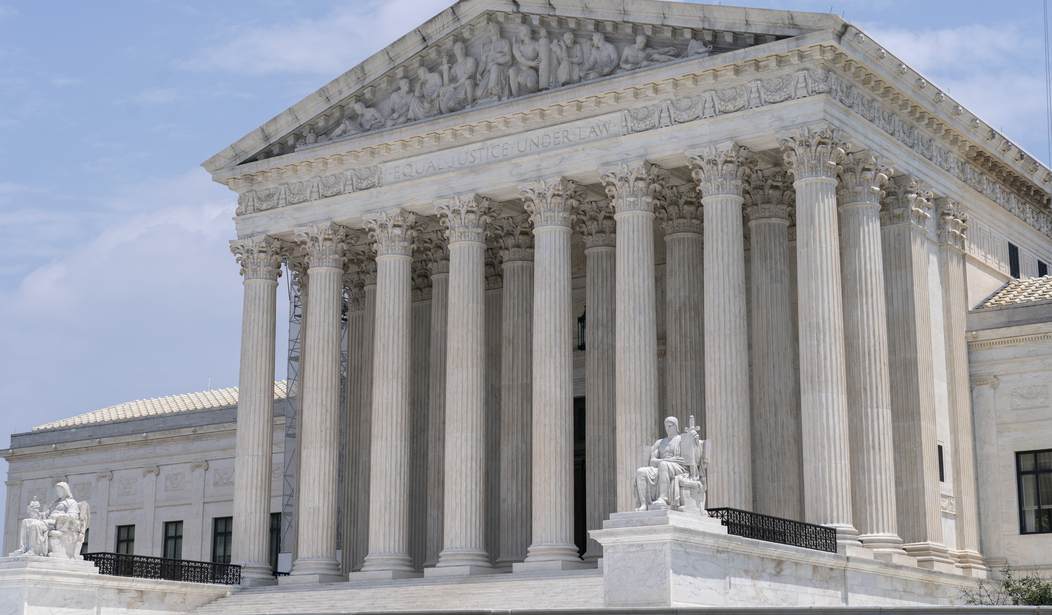This week, the U.S. Supreme Court heard opening arguments in Murthy v. Missouri, a case that calls into question whether or not the federal government can collude with social media platforms to censor certain content and viewpoints the government has deemed “misinformation” or “disinformation.”
In general, the case originated during the dark days of the pandemic, when the federal government decided it had the authority to order Big Tech platforms, such as Facebook, Twitter (now known as X), and YouTube from posting content that ran counter to the government’s preferred narrative concerning all things related to COVID-19.
Specifically, the case at hand refers to the Biden administration’s concerted and deliberate effort to censor information relating to the efficacy of masks and vaccines, the origins of the novel coronavirus, and content questioning the effectiveness of lockdowns and social distancing. Incredibly, the Biden administration went so far as to instruct Amazon to place “anti-vax books” on a “Do Not Promote” list.
On its face, these actions by the federal government are a blatant violation of the First Amendment, which explicitly protects Americans’ “freedom of speech.”
In September 2023, the U.S. Court of Appeals for the Fifth Circuit heard the case (then known as Missouri v. Biden), and ruled in favor of the plaintiffs.
According to the ruling, “For the last few years—at least since the 2020 presidential transition—a group of federal officials has been in regular contact with nearly every major American social-media company about the spread of ‘misinformation’ on their platforms. In their concern, those officials— hailing from the White House, the CDC, the FBI, and a few other agencies— urged the platforms to remove disfavored content and accounts from their sites. And, the platforms seemingly complied. They gave the officials access to an expedited reporting system, downgraded or removed flagged posts, and deplatformed users. The platforms also changed their internal policies to capture more flagged content and sent steady reports on their moderation activities to the officials. That went on through the COVID-19 pandemic, the 2022 congressional election, and continues to this day.”
Recommended
This is not breaking news. It has been well-documented, especially thanks to the release of the Twitter Files.
Ordinarily, one would assume the U.S. Supreme Court would rally around the plaintiffs in this particular case, seeing as how their fundamental rights were flagrantly violated by a cabal of government bureaucrats and Big Tech bigwigs.
However, you never know what type of kooky theories Supreme Court justices might concoct to turn this case on its head. Exhibit A: newly named Supreme Court Justice Ketanji Brown Jackson.
On March 18, while opening arguments were being made in the case, Brown Jackson told Louisiana Solicitor General Benjamin Aguiñaga, “My biggest concern is that your view has the First Amendment hamstringing the government in significant ways in the most important time periods.”
“You seem to be suggesting that that duty cannot manifest itself in the government encouraging or even pressuring platforms to take down harmful information,” Jackson continued. “So, can you help me? Because I’m really worried about that because you’ve got the First Amendment operating in an environment of threatening circumstances, from the government’s perspective, and you’re saying that the government can’t interact with the source of those problems.”
Soon after Brown Jackson’s comments were made public, a much-needed and well-deserved public backlash ensued. Across the social media universe, users posted their outrage with Brown Jackson’s ridiculous assertion that the First Amendment ought not “hamstring” the government.
Earth to Ketanji Brown Jackson: The entire point of the First Amendment is to hamstring the government.
I almost cannot believe that a sitting Supreme Court justice would utter something so ludicrous.
However, this is the same woman (if I may use that term) who, when asked if she can define the word “woman” during her Senate confirmation hearing, responded, perplexingly, “I’m not a biologist.”
Like it or not, Ketanji Brown Jackson has absolutely no business being on the U.S. Supreme Court, the highest court in the land, in which major societal decisions with far-reaching consequences are routinely made.
By the looks of it, Brown Jackson simply does not posses the intellectual acumen to hold this position of high power for decades to come. But, it is what it is. Brown Jackson will most likely be a mainstay on the Supreme Court for as long as I am around.
Therefore, the focus must be turned to the future. With a significant presidential election mere months away, and a few Supreme Court seats likely to open over the next few years, it is imperative that future justices refrain from judicial activism, which is Brown Jackson’s forte, and return to originalism.
As the late Justice Antonin Scalia once brilliantly put it, “The Constitution that I interpret and apply is not living but dead, or as I prefer to call it, enduring. It means today not what current society, much less the court, thinks it ought to mean, but what it meant when it was adopted.”
I’m pretty sure the Founding Fathers never intended the government to police “misinformation” and “disinformation”—pandemic or not.
Chris Talgo (ctalgo@heartland.org) is editorial director at The Heartland Institute.

























Join the conversation as a VIP Member